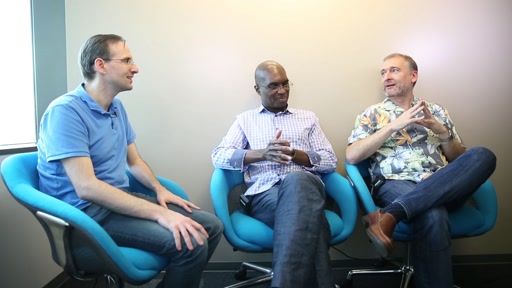GoingNative 55: ISO C++ @Issaquah Debriefing--Steve Carroll, Augustin Popa and Bryan DiLaura
 The new GoingNative is out!
The new GoingNative is out!
GoingNative 55: ISO C++ @Issaquah Debriefing
by Steve Carroll, Augustin Popa and Bryan DiLaura
From the video:
In this episode of GoingNative, Steve Carroll chats with Gabriel Dos Reis and Gor Nishanov about what happened at the C++ standards meeting in Issaquah, Washington.

 The new GoingNative is out!
The new GoingNative is out! Compilation time computations are good!
Compilation time computations are good!